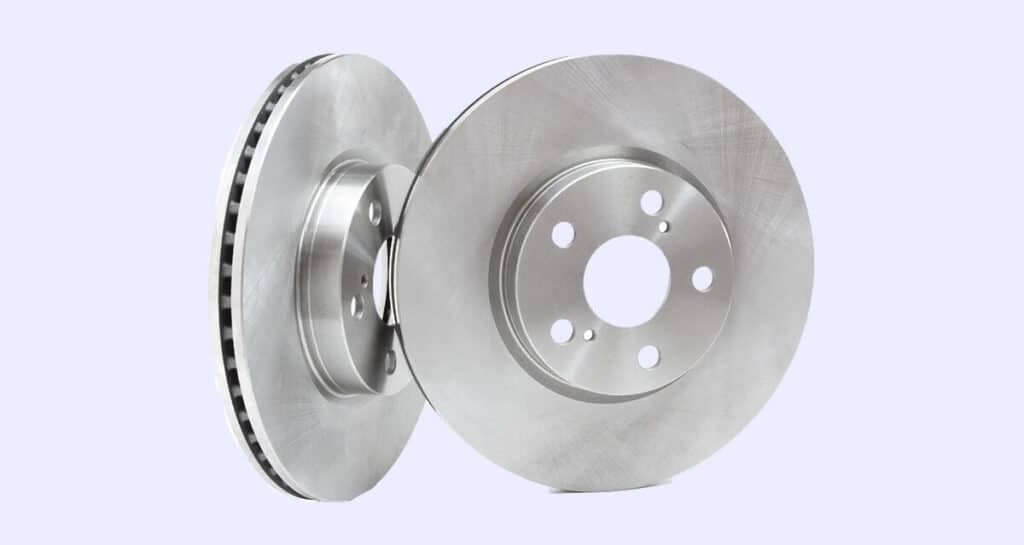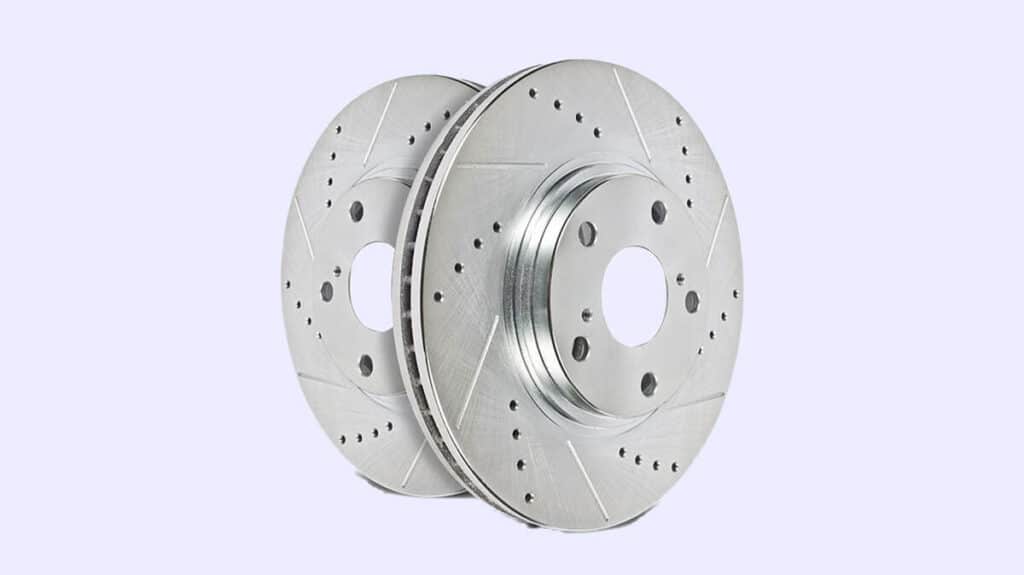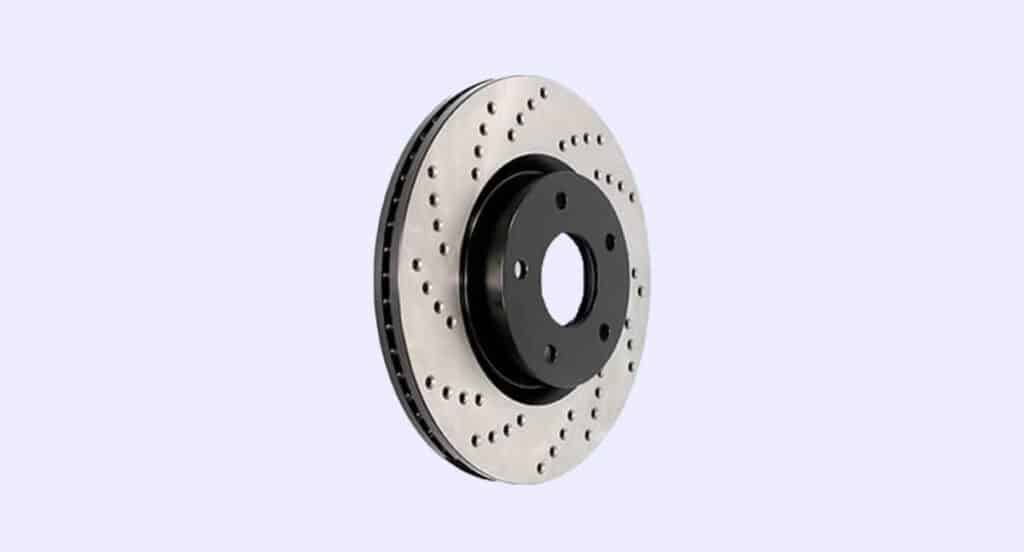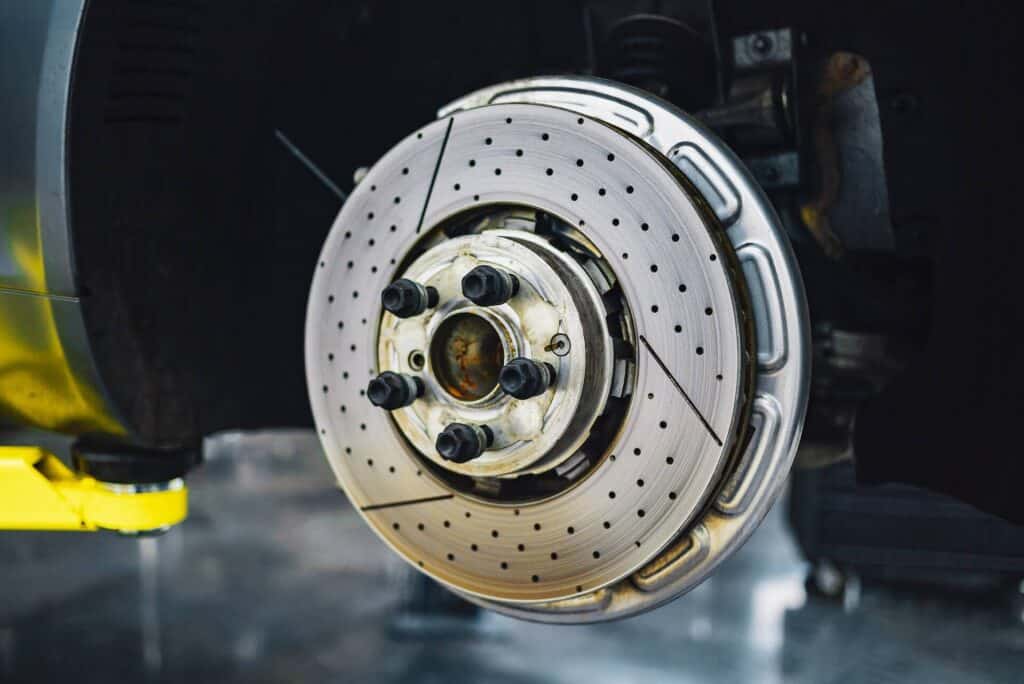The right brake rotors are essential for optimal vehicle performance, safety, and driving experience. This comprehensive guide will help you navigate the world of brake rotors and make an informed choice tailored to your needs.
Assessing Your Driving Needs: Factors to Consider
Before diving into the world of brake rotors, it’s crucial to evaluate your unique driving needs and circumstances. By understanding your driving habits and requirements, you can make a more informed decision when choosing the perfect brake rotors for your vehicle. Here are some key factors to consider:

1. Driving Style and Habits: The way you drive has a significant impact on the type of brake rotors you need. Aggressive driving or frequent towing might require rotors with better heat dissipation capabilities, while casual, everyday driving may only necessitate standard rotors.
2. Vehicle Type and Weight: The size and weight of your vehicle will influence the demands placed on your braking system. Heavier vehicles, such as trucks or SUVs, require more robust braking systems to handle the increased weight and momentum. On the other hand, lighter vehicles like sedans and compact cars may not require as much braking force.
3. Typical Driving Conditions and Environment: The environment in which you drive will also affect the kind of brake rotors you should choose. For instance, urban driving with frequent stop-and-go traffic may require rotors that provide consistent performance under constant braking. In contrast, those who regularly drive in hilly or mountainous areas may need rotors that can withstand high heat generated during downhill braking.
4. Performance Expectations and Priorities: Consider what aspects of brake performance are most important to you. Are you looking for a rotor that provides maximum stopping power, or is longevity and durability your primary concern? Understanding your priorities will help you select the best brake rotors to meet your specific needs.
What is the Difference Between Solid and Vented Rotors?
When it comes to brake rotors, there are two primary designs: solid and vented. Understanding the differences between these two designs can help you determine which one is better suited to your specific driving needs and preferences. Let’s take a closer look at each type:
Solid Rotors
Solid rotors, as the name suggests, are made from a single, solid piece of metal. These rotors are generally less expensive and lighter compared to their vented counterparts. They are commonly found in smaller, lighter vehicles where heat dissipation is not as critical. Solid rotors provide adequate braking performance for everyday driving conditions and are less prone to cracking under stress. However, they can be less effective in extreme driving conditions or under heavy braking, as they can heat up quickly and potentially cause brake fade due to reduced friction.
Vented Rotors
Vented rotors, on the other hand, feature a two-layer design with a gap or vents in between the layers. This design allows air to flow through the rotor, promoting more efficient cooling and heat dissipation. Vented rotors are typically used in larger, heavier vehicles or high-performance cars that require better heat management due to increased braking demands. The improved heat dissipation offered by vented rotors helps to reduce the risk of brake fade, providing more consistent and reliable braking performance in demanding conditions.
An Overview of Brake Rotor Types
Brake rotors play a critical role in your car’s braking system, converting kinetic energy into thermal energy through friction. As you press the brake pedal, the brake pads clamp onto the rotors, slowing down your vehicle. There are several types of brake rotors, each with their unique characteristics and applications. Here is an overview of the most common brake rotor types:
Blank/Smooth Rotors
Blank or smooth rotors are the simplest and most common type of brake rotor found on many vehicles. They feature a smooth surface without any slots or drilled holes. These rotors provide a consistent braking surface, resulting in quiet, efficient braking performance for everyday driving conditions. They are also more cost-effective than other rotor types, making them a popular choice for most drivers.
Slotted Rotors
Slotted rotors feature grooves or slots cut into the surface of the rotor. These slots help to channel away brake dust, debris, and water from the braking surface, resulting in improved contact between the brake pads and rotors. Slotted rotors offer better heat dissipation and improved braking performance under heavy loads or high-performance driving conditions. However, they can cause faster brake pad wear and may produce more noise compared to blank/smooth rotors.
Drilled Rotors
Drilled rotors have a series of holes drilled through the surface of the rotor. These holes help to dissipate heat more effectively, reducing the risk of brake fade and improving braking performance in wet conditions. Drilled rotors are often used in high-performance and sports cars, where effective heat management is critical. However, the drilled design can make the rotors more susceptible to cracking under extreme stress or high temperatures.
Drilled and Slotted Rotors
Drilled and slotted rotors combine the benefits of both drilled and slotted designs, featuring both holes and slots on their surface. These rotors offer excellent heat dissipation, debris removal, and improved braking performance in various driving conditions. However, they are more expensive than other rotor types and can also result in faster brake pad wear and increased noise.
Choosing the right brake rotor type depends on your driving style, vehicle type, and performance expectations. For everyday driving, blank/smooth rotors may be the best choice, while slotted, drilled, or drilled and slotted rotors are more suitable for high-performance or heavy-duty applications.

Comparing Brake Rotor Types: Pros and Cons
To make an informed decision about the best brake rotor type for your vehicle, it’s essential to understand the pros and cons of each type. Here’s a comparison of the main brake rotor types, along with their advantages and disadvantages:
Blank/Smooth Rotors
Pros
• Quiet operation due to a smooth braking surface
• Cost-effective compared to other rotor types
• Suitable for everyday driving and most vehicles
• Consistent and even brake pad wear
Cons
• Less effective heat dissipation compared to slotted or drilled rotors
• Reduced performance in wet or extreme driving conditions
Slotted Rotors
Pros
• Improved heat dissipation and reduced brake fade
• Better braking performance under heavy loads or high-performance driving
• Enhanced debris, water, and brake dust removal from the braking surface
Cons
• Increased noise compared to blank/smooth rotors
• Faster brake pad wear due to the aggressive slot design
• Generally more expensive than blank/smooth rotors
Drilled Rotors
Pros
• Excellent heat dissipation for improved braking performance
• Enhanced wet weather braking due to water evacuation through the drilled holes
• Aesthetically appealing, often used on high-performance and sports cars
Cons
• Susceptible to cracking under extreme stress or high temperatures
• Faster brake pad wear compared to blank/smooth rotors
• More expensive than blank/smooth rotors
Drilled and Slotted Rotors
Pros
• Combines the benefits of both drilled and slotted designs
• Superior heat dissipation and braking performance in various driving conditions
• Effective debris, water, and brake dust removal
Cons
• Most expensive among the rotor types
• Increased noise due to the combination of holes and slots
• Faster brake pad wear compared to blank/smooth rotors
| Feature | Blank/Smooth Rotors | Slotted Rotors | Drilled Rotors | Drilled & Slotted Rotors |
| Price | Low | Medium | Medium-High | High |
| Performance Applications | Low | Good | Good | Excellent |
| Noise Level | Low | Medium | Medium-High | High |
| Heat Dissipation | Fair | Good | Excellent | Excellent |
| Wet Conditions | Fair | Good | Excellent | Excellent |
| Brake Pad Wear | Low | Medium | High | High |
| Purpose | Daily street driving | Performance driving, heavy-duty workload | Performance driving, aggressive braking | Racing, extreme performance driving |

Understanding the Role of Brake Pads
1. Types of Brake Pads: Organic, semi-metallic, and ceramic pads are the most common types, each with unique characteristics.
2. Matching Brake Pads and Rotors for Optimal Performance: Ensuring compatibility between brake pads and rotors is crucial for effective braking.
How long do rotors last and which type last longer?
The lifespan of brake rotors can vary greatly depending on factors such as driving habits, vehicle type, rotor material, and the quality of the brake pads. On average, rotors can last anywhere from 50,000 to 110,000 km. However, some high-quality rotors may last even longer, up to 160,000 km, under ideal conditions and with proper maintenance.
As for which type of rotors last longer, it depends on the rotor design and material. Generally, blank/smooth rotors tend to have a longer lifespan than drilled or slotted rotors due to their larger surface area and absence of stress points. Drilled rotors, on the other hand, are more prone to cracking under extreme stress, which may shorten their lifespan. Slotted rotors, while more durable than drilled rotors, may cause increased brake pad wear, which can affect their overall lifespan.
It is essential to remember that factors like driving habits, brake pad compatibility, and routine maintenance play a significant role in the longevity of your brake rotors. To maximize rotor life, ensure that you use the appropriate brake pads, maintain proper brake fluid levels, and have regular brake system inspections.
The Importance of Regular Brake Maintenance and Inspections
Regular maintenance and inspections are crucial for ensuring the longevity and performance of your brake system. This includes checking brake pads, rotors, and fluid levels, as well as addressing any issues promptly.
Conclusion
In conclusion, selecting the best brake rotors for your car is a crucial decision that should not be taken lightly. By carefully considering your driving habits, vehicle type, and performance expectations, you can make an informed choice that will provide you with the most suitable rotor type for your needs. It’s essential to remember that not all rotors are interchangeable, and certain vehicles may require a specific type of rotor. Keep this in mind while making your decision, and ensure that you match your chosen rotors with compatible brake pads for optimal performance and longevity.
Furthermore, don’t forget the importance of regular brake maintenance and inspections in extending the life of your brake system components. By investing in high-quality rotors, brake pads, and brake system services, you can enjoy a safer, more reliable, and more enjoyable driving experience. Always consult with professionals when in doubt, and remember that maintaining your vehicle’s braking system is essential for both your safety and the safety of others on the road.

Here’s why Uchanics should be your top choice for brake repairs
• Experience brake pad replacements and brake servicing right at your doorstep
• Effortless online booking for your convenience
• Transparent, competitive pricing
• Skilled mobile technicians at your service
• Utilizing top-notch equipment and superior replacement parts
• Capability to complete 90% of repairs on-site, eliminating the need for a trip to the auto repair shop
• A reassuring 12-month, 20,000 km warranty for peace of mind
• Covering over 40 cities in Ontario including Oshawa, Ajax, Toronto, Vaughan, North York, Brampton, Mississauga and more
To receive a precise estimate for the cost of replacing your brake pads, simply request a Free quote by clicking here.
